Many people wonder about how to use mouthwash properly. If used incorrectly, it not only reduces the effectiveness of the product but also causes waste. In this article, BIK International Dental will share the advantages of using mouthwash and guide you on how to use mouthwash effectively.
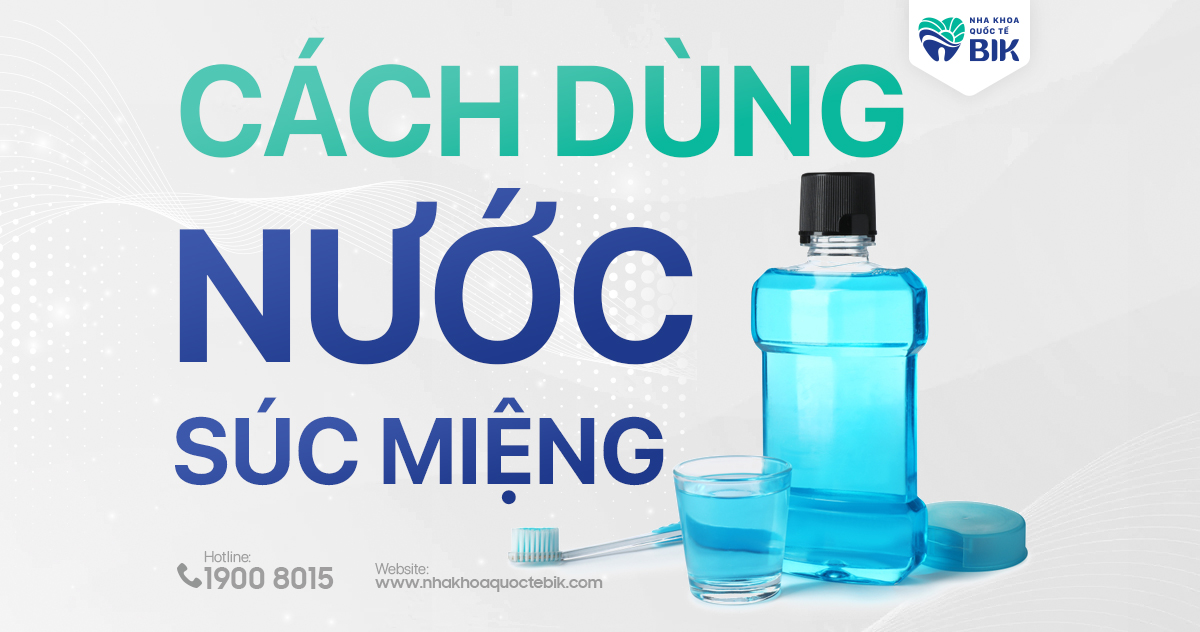
Uses of mouthwash
Mouthwash is an important product in oral health care. They are formulated as liquid solutions and contain antibacterial active ingredients such as zinc sulfate, menthol, boric acid, chlorhexidine, triclosan, etc. In addition, mouthwash also contains flavoring and fragrance agents to help bring a comfortable feeling to the user. With these ingredients, using mouthwash properly brings many benefits:
- After brushing your teeth, people will use mouthwash to remove food debris or plaque, helping to clean the oral cavity better.
- Using mouthwash daily helps prevent bad breath, increasing confidence with fresh breath.
- Prevent common oral diseases such as gingivitis, tooth decay, yellow teeth, …
- Eliminate bacteria that cause diseases in the mouth and respiratory tract
- Support healing of mouth wounds after tooth extraction or surgery faster.
- Some mouthwashes also contain Fluoride to help protect tooth enamel.
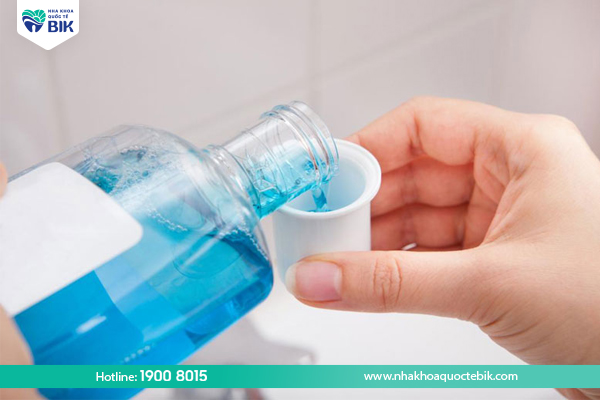
Disadvantages of mouthwash
In addition to its significant advantages, mouthwash also has limitations that you need to note:..
Stimulates mouth ulcers
When the amount of alcohol in mouthwash exceeds the allowable level, it can irritate the wounds in the mouth rather than help heal them.
Bad breath
Using mouthwash can help freshen your breath, but the effect only lasts for a short time. Mouthwash helps eliminate bacteria in the mouth, remove plaque and bring fresh breath. However, using mouthwash only supports the oral care process but cannot completely protect your oral health.
To best protect your teeth, you still need to follow the basic principles: brush your teeth at least twice a day, change your toothbrush every 3 months, use dental floss to clean between teeth, choose toothpaste containing fluoride to effectively prevent tooth decay. If you only abuse mouthwash, it is not enough.
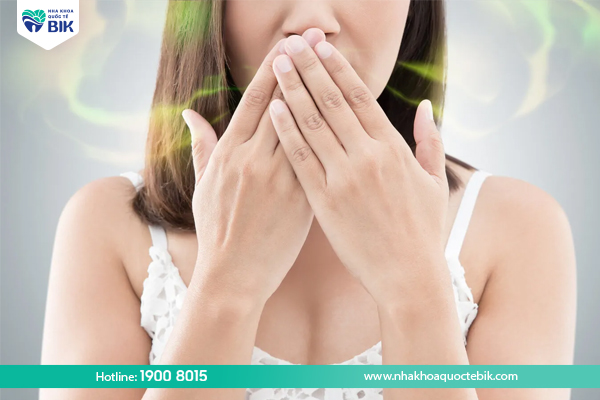
How to choose the right mouthwash
Currently, there are many brands that produce mouthwash with different ingredients. To choose the right type, you need to consider your oral health and choose the right product. For example:
- If you have cavities, have just had a tooth extracted or have gingivitis, choose a mouthwash containing Chlorhexidine.
- If you have sensitive teeth, your mouth is easily irritated, choose a mouthwash containing Potassium citrate to reduce sensitivity.
- Products containing green tea, mint, lemon, … are suitable for people with bad breath.
- People with yellow teeth and tartar should choose a mouthwash containing Pyrophosphate, Cetylpyridinium to whiten teeth.
How to use mouthwash effectively
When using mouthwash, it is not only important to choose the right type but also important to use it correctly. To maximize the effectiveness of mouthwash, you need to follow the instructions for using mouthwash as follows:
Step 1: Always remember to brush your teeth after eating.
Step 2: Use dental floss to remove food stuck between your teeth that cannot be cleaned by a toothbrush.
Step 3: Pour about 15 – 20ml of mouthwash into a cup. If dilution is needed, follow the instructions for each type of mouthwash.
Step 4: Rinse the mouthwash according to the instructions on the package. If your mouth is healthy, rinse for about 30-45 seconds. If you have gum problems, rinse for 1-2 minutes. During rinsing, you can move the mouthwash around in your mouth so that the active ingredients can contact and clean your teeth more effectively. This is the final step in how to use mouthwash effectively
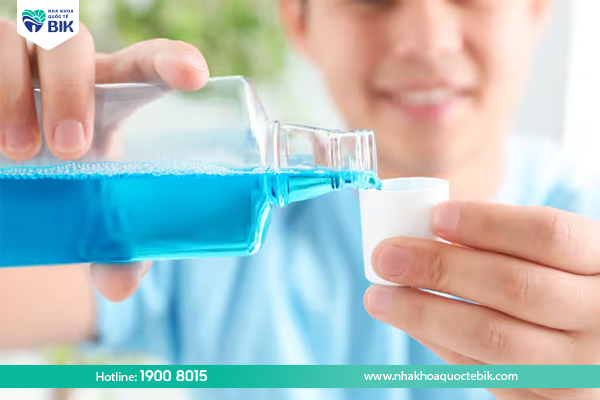
Notes when using mouthwash
To achieve the best results, using mouthwash properly also needs to pay attention to the following things.
Who should not use mouthwash
Mouthwash is a good product but not everyone should use it. Below are cases where mouthwash should not be used:
- Children under 5 years old.
- People who are sensitive to the ingredients in mouthwash.
- Stop using if any unusual signs appear during use.
- Pregnant or breastfeeding women should consider carefully before using mouthwash, and should only use it after consulting a doctor about the appropriate product.
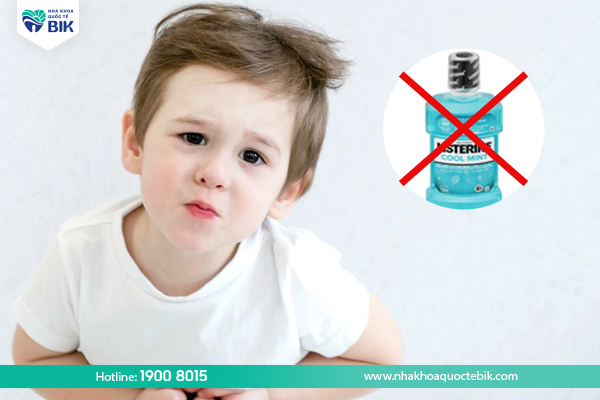
- Before choosing a mouthwash mouth, read the ingredients of the product carefully.
- Do not use too much and only rinse your mouth a maximum of 3 times a day.
- Let your mouth rest for at least 30 minutes after rinsing, do not eat or drink during this time.
- In addition to using mouthwash, you should also take other oral hygiene measures such as brushing your teeth, flossing, etc.
- Avoid choosing mouthwash containing alcohol if you have gingivitis, tongue inflammation or mouth ulcers.
- Do not swallow mouthwash to avoid irritation from the ingredients in the mouthwash..
With the above information, hopefully you will know how to use mouthwash most effectively. Using mouthwash is a simple way to maintain fresh breath and protect your dental health.


















